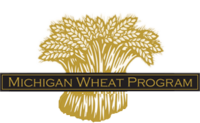Lansing, Mich. (March 14, 2018) – The Michigan Wheat Program is now accepting nominations for three seats on its nine-member board of directors. The directors will be appointed by Governor Rick Snyder this spring.
The seats in District 1 (Gratiot, Ionia, Kent, Mason, Mecosta, Montcalm, Muskegon, Oceana, Ottawa and Newaygo counties); District 4 (Eaton, Genesee, Ingham, Livingston, Oakland, Wayne and Washtenaw counties); and District 9 (the milling representative) are up for three-year appointments or re-appointments in 2018. (See map for districts.)
A full description of the program is available on the Michigan Wheat Program website at www.miwheat.org, under the “About” and “Enabling Legislation” tabs.
Wheat farmers who live in Districts 1 and 4 with an interest in serving on the board; and any interested milling representative should contact program executive director Jody Pollok-Newsom by March 24, 2018, at jody@miwheat.org or call 1-888-WHEAT01 (888-943-2801) for more information and a petition form.
To be eligible for consideration, a farmer must submit a petition with five signatures from growers in his or her district and fill out an on-line application for the Governor’s office. At least two nominations must be made for each available seat, and the Governor’s decision is expected by late spring.
The Michigan Wheat Program was created and voted in by the state’s wheat farmers in 2011, and re-authorized in 2016, as a commodity check-off organization to advance the interests of wheat farmers in the state. Wheat program funds are used for research, education, communication and market development. The full legal program may be reviewed at Enabling-purpose-Michigan-Wheat-Program-Final-9-1-2011.pdf.
The Michigan Wheat Program is funded by nearly 8,000 farmers who grow wheat in 50 of Michigan’s 83 counties. The Michigan Wheat Program board seeks to promote the state’s wheat industry by funding and supporting the strategic priorities of wheat farmers working with input suppliers, seed producers, millers, end users and consumers. Research on wheat production practices and grower education has been an early priority for the organization.

